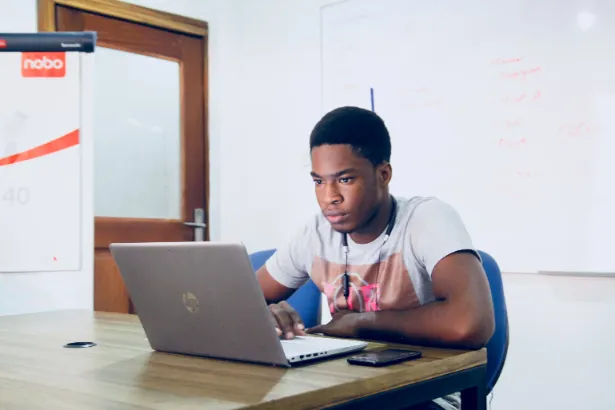In continuation of our reflection on the essential qualities of a good developer (Valuing Curiosity Beyond Technical Expertise in Developers), it’s time to address an often neglected but crucial aspect: the quality of exchange during technical interviews. As a technical referee who has conducted numerous interviews, I’ve observed the critical importance of open and honest communication, both from the candidate and the recruiter.

Beyond Canned Questions
Imagine the start of a technical interview. Instead of relying solely on prepared questions, you engage in a genuine technical conversation. This approach, which I strive to adopt over time, transforms, when successful, interviews into mutually enriching exchanges.
🎭 The tendency to stick to a pre-established script is unfortunately common, but it often limits the depth and relevance of the interview. For example, I’ve witnessed interviews where the same questions about theoretical concepts were systematically asked, regardless of their relevance to the project. I understand the goal of having a common benchmark for each candidate. But this practice can be counterproductive: a candidate might apply these concepts without knowing the exact terminology, while another might recite them without real understanding.
The most amusing anecdote on this subject? As a candidate, I discovered that some consulting firms were specifically briefing candidates to prepare for theoretical questions that often came up. This revelation highlights how these ready-made questions can become a guessing game rather than a true assessment of skills.
These observations convinced me of the need to adopt a different approach. I focus less on the CV or standardized questions, preferring a conversation that reveals how the candidate thinks, solves problems, and applies their knowledge in real situations.
The Value of Authentic Exchange
The most revealing interviews are often those that venture off the beaten path. Let me share a personal example: during an interview for a fullstack developer position, an in-depth discussion about the candidate’s blockchain project proved particularly enriching. By encouraging him to detail the technical design while simplifying certain concepts, I was able to assess his ability to communicate complex ideas, while learning myself about a technical field that was unfamiliar to me. As an anecdote, his profile wasn’t selected for this position, but this exchange caught my attention enough that I was able to place him on another project some time later.
This experience illustrates how an open dialogue can sometimes transform an interview into a stimulating technical conversation, where everyone learns from each other.
Cultivating a Culture of Mutual Exchange
To foster an authentic exchange, here are some strategies I can advise, on my humble scale:
- Encourage concept explanation: Invite candidates to delve into subjects they master.
- Avoid cliché questions: Prefer open-ended questions that stimulate discussion.
- Be ready to learn: Show interest in the candidate’s unique experiences.
- Value depth over breadth: Focus on a few subjects in depth.
- Build on the candidate’s experience: Use the candidate’s past experiences as a starting point for in-depth technical discussions.
- Exchange on concrete elements: Integrate discussions around tangible aspects of the job. For a developer, this might involve a code review or architecture analysis. For a tech lead, consider discussing a practical case of technological choices or team management. The goal is to assess the candidate’s practical thinking in situations close to their future role, even exploring playful aspects like role-playing or what if scenarios.
🚀 This approach creates a space where candidates and recruiters can shine and learn mutually, while allowing a more accurate assessment of the candidate’s real skills.
The Importance of “I Don’t Know”
In this context of authentic exchange, it’s crucial for the recruiter to create an environment where saying “I don’t know” is not only accepted but encouraged. As a recruiter, your role is to value this intellectual honesty. When a candidate admits to not knowing a subject, consider it an opportunity to explore their learning capacity and curiosity, rather than a shortcoming.

When the Exchange Falls Short: Managing Difficult Interviews
Despite our desire to create an environment conducive to enriching exchange, sometimes the interview doesn’t go as hoped. Despite our best intentions, things don’t always go as planned. I’ve experienced situations where candidates seemed to crumble as the technical exchange progressed, unable to share concrete experiences or in-depth technical knowledge.
a) The Trap of Insistence
🚧 Faced with this situation, it’s tempting, as a recruiter, to insist and multiply questions to try to “unblock” the candidate. We hope to discover hidden knowledge or unexpressed skills. However, this approach can be counterproductive. Instead of insisting, it’s preferable to adopt a more flexible approach.
b) The Importance of Knowing When to Conclude
In these situations, it’s crucial to quickly recognize when the exchange is not fruitful. Here are some strategies I’ve learned to implement:
- Encourage “I don’t know”: Create an environment where the candidate feels comfortable admitting their ignorance on a subject. Value this honesty rather than insisting.
- Change direction: If a technical area seems problematic, try to pivot to other aspects of the candidate’s experience.
- Evaluate soft skills: Even if technical knowledge seems limited, observe how the candidate handles the situation. Their ability to admit their limits and their reaction to difficulty can be revealing.
- Conclude with respect: If the interview is clearly not conclusive, know how to end it respectfully and professionally.
c) Learning from Each Interview
👨🏫 These experiences, even the most delicate ones, offer valuable learning opportunities. They allow us to refine our recruitment approach and develop empathy.
It’s useful, after a complicated interview, to step back and ask ourselves a few questions:
- How could we spot signs of difficulty earlier?
- Were the questions asked really appropriate?
- Did the candidate have enough opportunities to show their strengths?

Final Thoughts
Conducting technical interviews that are both authentic and enriching requires open-mindedness and flexibility, whether you’re a recruiter or a candidate.
Let’s be frank: not all interviews will be resounding successes, which makes the match unique when it happens. The real challenge is navigating these sometimes turbulent waters with professionalism and kindness. Each interview, whether brilliant or laborious, is an opportunity to learn and progress. And this applies to everyone around the table (or the webcam, as is often the case today 😉).
In the end, a good technical recruiter isn’t one who seeks at all costs to trip up the candidate or flaunt their own expertise. Rather, it’s someone who can create a framework conducive to real technical dialogue, who shares their knowledge enthusiastically while remaining attentive, and who knows how to handle delicate situations with tact.
This approach doesn't just more accurately assess the candidate's skills. It also contributes to making the recruitment experience more positive and enriching for all participants. And who knows? Even if the perfect fit isn't perfect for the position in question, you may have created a valuable professional connection for the future.
Explore More
